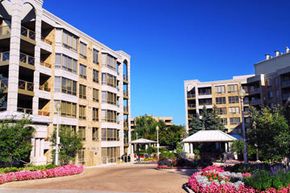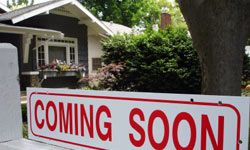Condo living certainly has its upsides. Unlike a private home, when you live in a condo you don't have to worry about maintaining a yard, repairing the roof when it leaks, or handling other maintenance outside of your unit. Instead, you pay your home owner association (HOA) fees, and the condo board uses that money to keep the complex in good repair and looking nice.
Part of your HOA fees pay for ongoing costs like landscaping and part go into condo reserves to pay for one-time expenses like painting exterior walls [source: Tempe Condo Experts]. But what happens if repairs pop up that the reserve fund can't cover? How can you know that your condo is setting aside enough money?
Advertisement
If your condo does end up with a big expense and there isn't enough money in the reserve fund to pay for the repair, you (and everyone else in your condo) may have to pay a special assessment [source: McClellan]. This happened to a friend of mine a few years ago. Her parking deck needed structural repairs, and each condo owner had to kick in to cover the work -- to the tune of thousands of dollars apiece.
The best way to avoid a special assessment is to make sure that there's enough money in your condo's reserve fund. Every few years, your condo should be doing a reserve study where experts come in to look at the property and determine how much your condo should have in reserve [source: Rathbun]. A reserve study projects maintenance costs your condo can expect to pay, and it takes into account factors like the age of the building, what shape it's in, and what amenities you have [source: Complex Solutions, Ltd.]. That final figure is only a recommendation, and condos don't always fully fund their reserves. If your reserve is 70 percent funded or more, you're probably in good shape [source: Tempe Condo Experts]. That means if your reserve study says you should have $20,000 in reserves, you're in good shape as long as the account has $14,000. Smart buyers will check the percentage of their condo's reserve before buying.
The laws about condo reserves and how often your HOA should conduct a reserve study vary by state. Some states - like Arkansas - have no laws about reserve studies, while Florida requires a reserve study every three years [sources: Facilities Advisors Inc., Tyndall]. Not sure about your state's reserve study laws? Facilities Advisors Inc. has a list of these laws by state.
In a typical condo, 25 to 35 percent of your HOA fees should be going to reserves [source: Thompson]. Frank Rathbun, vice president of communications at Community Associations Institute, an HOA advocacy group based in Falls Church, Va., says that getting involved in your condo is the best way to know where your money is going and whether the reserves are in good shape. If you can't volunteer to be on the board, you can still attend your condo's annual and budget meetings.
You can also request a look at the most recent reserve study and ask for details about the reserve fund. It may take a little time to get you what you're looking for, so be polite and patient. Remember that the people on the condo board are your neighbors and that they're volunteers. As Rathbun points out, "You're all in it together. It should never be an 'us versus them.'"
Advertisement


